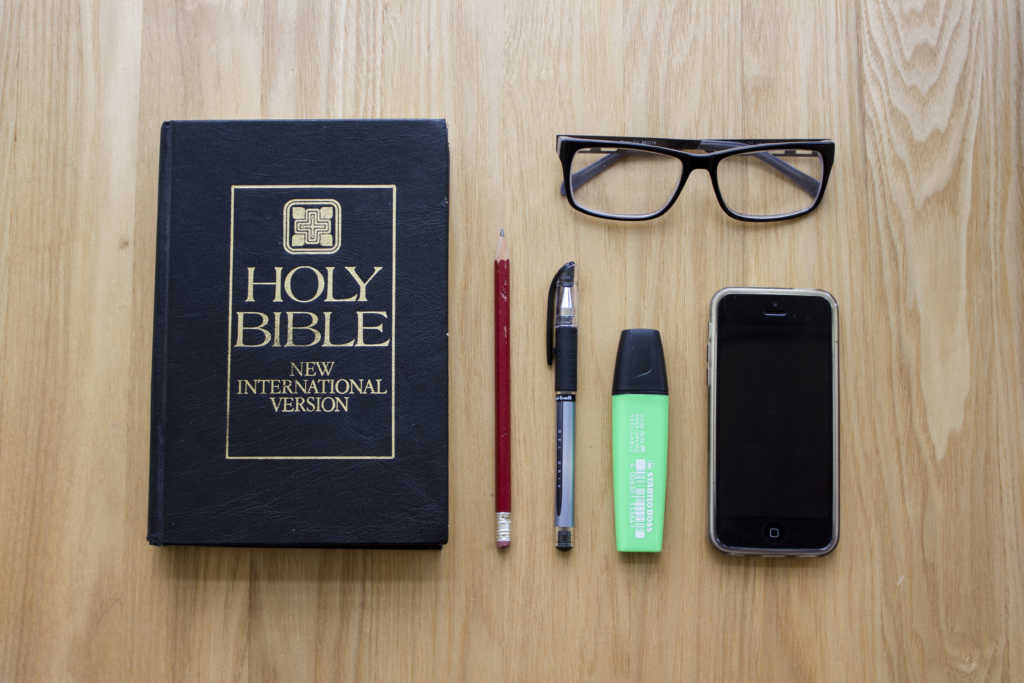Israeli schools continue to spend more hours teaching students the Bible than almost any other country in the world.
According to new data released by the Organisation for Economic Co-operation and Development (OECD), the Middle Eastern nation allocates three times more time to Biblical education in comparison to the United States and the 33 other members of the OECD.
But that might not even be enough for the ancient Biblical land, with Education Minister Rafi Peretz stressing the vital importance of teaching the scriptures to young people.
“The goal is Bible for every child, not just a computer for every child,” he said at a recent seminar held by Herzog Academic College, according to Haaretz.
Peretz argued that when people study the Bible, they have “no questions about our right to the land.”
“These things are clear and known,” he declared. “We are a nation that relies on its spirit, and the Bible is the decisive book in the campaign.”
Currently, Israel allocates some 14 percent of classroom time to religious subjects — the vast majority of this time is used to study the Bible. That compares to just 4 percent across Europe, with the OECD members spending at an average of 5 percent of classroom time on religious studies.
Among state-religious schools in Israel, some 55 weekly hours are allocated solely for Bible and Jewish studies.
While the US falls well behind Israel on the allocation of time and resources to religious education, the Bible is making a resurgence in the education system.
In 2017, Kentucky governor Matt Bevin signed a law which makes provisions for the teaching of the Bible in public schools, giving local school boards the power to develop Biblical literacy classes.
“The idea that we would not want this to be an option for people in school, that would be crazy,” Bevin at the signing ceremony, according to CNN. “I don’t know why every state would not embrace this, why we as a nation would not embrace this.”
Indeed, while the GOP has been pushing this agenda for a number of years, in January, the President himself tweeted about his desire to a ramping up of these classes.
“Numerous states introducing Bible Literacy classes, giving students the option of studying the Bible,” he wrote. “Starting to make a turn back? Great!”
And with those words, many who have been championing the open exploration of the Bible in American schools are becoming increasingly excited.
“We’re not too far away from a tipping point,” Chuck Stetson, who publishes a widely-used Bible study textbook, told the Washington Post.
“Instead of having to find a reason to teach the Bible in public schools academically, as part of a good education, you’re going to have to find a reason not to do it.”
Stetson added that when “the president of the United States gives us a shoutout, that’s pretty crazy.”
“It’s got the momentum now,” he added.
One of the politicians at the helm of attempts to introduce the Bible to the schooling system is former Virginia congressman, Randy Forbes, who heads up the Congressional Prayer Caucus Foundation.
“Doesn’t it just make sense that we should have that book that has been so impactful at least be studied and examined by people who want to study and examine in the place where we go to explore ideas and look at what we are going to do for tomorrow?” Forbes asked in an interview with CBN News.
What is the legal precedent?
Obviously, when comes to the teaching of religious subjects, many issue concern over the separation of Church and State. Indeed, organizations like the Wisconsin-based Freedom From Religion Foundation spend millions of dollars on civil litigation, often with the sole aim of eradicating Biblical recitals and religious symbolism from the public school arena.
And there is good legal precedent for that endeavor — in 1963, the Supreme Court ruled in School District of Abington Township v. Schempp that school-mandated Bible reading is was a fundamentally unconstitutional religious practice.
It did, however, note that Bible can be studied in schools.
“Nothing we have said here indicates that such study of the Bible or of religion, when presented objectively as part of a secular program of education, may not be effected consistently with the First Amendment,” the ruling read.
Still, those against the initiatives insist that any introduction of the Bible into the public school system is a breach of constitutional values.
The new GOP-pushed classes are “part of an effort to establish this sort of narrow Christian agenda,” Rachel Laser, the president and chief executive Americans United for Separation of Church and State, told WaPo.
Forbes, however, disagreed.
“We are not trying to get someone or tell someone they have to believe a certain thing,” he said, “we are just saying, ‘Look at the history of this book. Look at the importance of the ideas in this book. Look at how it plays a role in even the policies of the United States of America and you make your own decisions.'”



